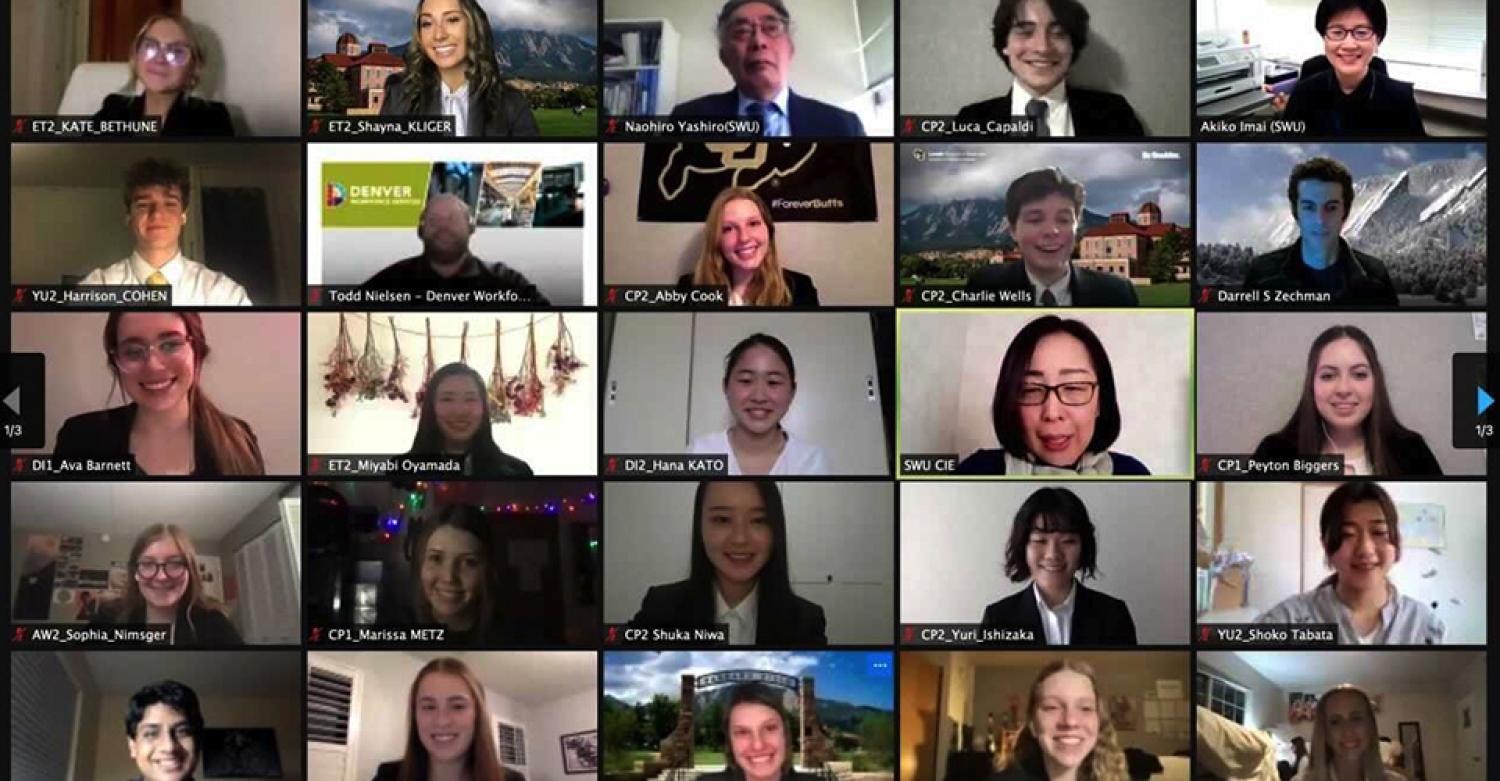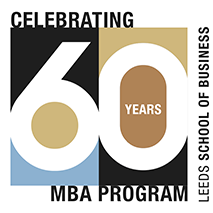Leeds Scholars Partner with Tokyo Students for Global Consulting Project

Students in the Leeds Scholars Program had an exciting addition to their academic itinerary this semester: working on a global consulting-style project with students in Tokyo.
Through virtual interactions and an innovative approach to group work, first-year Leeds Scholars collaborated with students from the Showa Women’s University in Tokyo on an intercultural business assignment.
“We wanted students to have that experience of working with a partner that is in a different time zone and is coming from a different culture and background, and to experience navigating all of the little things that come with that,” said Sarah Cowan, assistant director of the Leeds Scholars and Honors Programs. “And we really feel that experiential learning is the best way to do that.”
With international education looking markedly different during COVID, the Leeds Scholars Program team was determined to still provide students with a global educational experience, as their first-year students would typically travel abroad during a normal year through the First-Year Global Experience (FGX). This year, the team leaned on an existing partnership with Showa Women’s University, a private university in Tokyo, and created a business lesson centered on a global consulting-style project.
“It was quite eye-opening to learn how different education, culture and values are in another country,” said Leeds Scholar Anant Gupta. “I appreciate the experience it gave me to work with peers in a virtual, international setting.”
Through the partnership, students from Leeds and Showa formed ten teams and were assigned one of five business topics: the aging workforce; entrepreneurship and innovation; diversity and inclusion; youth employment; and climate policy. Each topic had an overarching theme of the business world during the current pandemic. Students compared and contrasted their assigned topic from an intercultural lens—focusing on differences and similarities between Japan and the U.S.
After two kickoff meetings where faculty experts from each university, including Leeds’ Dean Matusik, introduced the project and the assigned topics, students were grounded in the basics and sent off into their groups. Over the span of six weeks, teams coordinated over Zoom, email, WhatsApp and Google Docs. The joint research project culminated in presentations that explored how the students’ topics were present in each country, best business practices and cultural differences related to their topic, and more.
“The Tokyo FGX project was undoubtedly the most rewarding yet challenging project I have worked on this semester,”
said Leeds Scholar Shayna Kliger.
“Working through cultural and language barriers with students from the Showa Women’s University taught me how to work on an international, cross-cultural team, delegate tasks, and find ways to come to a clear solution when comparing differences in regards to entrepreneurship and innovation between the U.S. and Tokyo,” said Kliger.
In addition to adding a valuable business experience to their toolbox, students had the opportunity for intercultural exchange and to make global friendships through the project. The project’s first-year Scholars will also have the opportunity to visit their Tokyo peers in the future and to learn more about Japan and experience its culture. With the goal of fostering intercultural collaboration, the FGX component of the Leeds Scholars Program usually occurs in students’ first year as a Scholar, when they visit the business hub of a country’s region and work on consulting-style projects. Following a ‘think global, act local’ model, the program then involves students in a community outreach project in their second year.
Remarking on insights that the team has gleaned from bringing a virtual global experience to students during COVID, Assistant Director Sarah Cowan said they plan to foster more virtual connections so students can have an introduction to a country before traveling.
“We can really leverage these digital tools, such as Zoom, and incorporate them into the existing structure of the FGX course,” said Cowan. “I think the students enjoyed having connections with peers in another country, and the COVID pandemic has really put into sharp focus how interconnected we are—it’s a global world and that human connection is more important than ever.”







